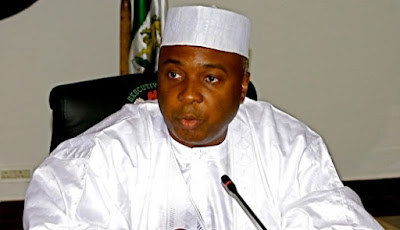As the National Assembly resumed from its break, the Senate President Bukola Saraki has said past administrations’ failure to plan in times of boom was the cause of economic hardship Nigeria currently faces.
“The seeds for the condition that we suffer from today must have been planted by past administrations that refused to do what was necessary,” said the senate president in his welcome back speech to senators.
Saraki noted that the economy would have fared better, in spite of sliding prices of oil on the international market, if foreign reserves had not been depleted.
“The collapse in oil prices from over $100 per barrel to about $48 recently meant the Nigerian economy would experience serious challenges.
“However, low sovereign savings have compounded our situation with FX reserves having declined from over $65bn in 2007 to about $30bn by 2015. The implications of this is that we must do something drastic and quick to restore confidence back into the economy and get people investing and spending again if we are to end the despair in the land.”
He said his interactions with his constituents had afforded him the opportunity to better understand the extent hardship Nigerians are facing.
“I soon realized that my people are not so interested in how we got here or who to blame for our current situation, Said saraki. “They only wanted to know that government has plans to get them out of this current predicament.
“To them, the only explanation that makes sense at the moment is that which puts food on the table, reduces price of rice, garri, salt, sugar, meat and saves jobs.
Saraki challenged the Senate to come up with measures that would alleviate the sufferings of the people, noting that with strong leadership the country would overcome its problems.
“It is clear to me that when people are desperately hungry, what they need is leadership with a clear vision; leadership whose daily actions reflects the very urgency of the people’s condition.
“Therefore, our response to the current challenge must be dictated by the urgency of the hardship that the people suffer on a daily basis. I say this to urge us that we must have an urgent debate on the way forward.”
THE GUARDIAN
